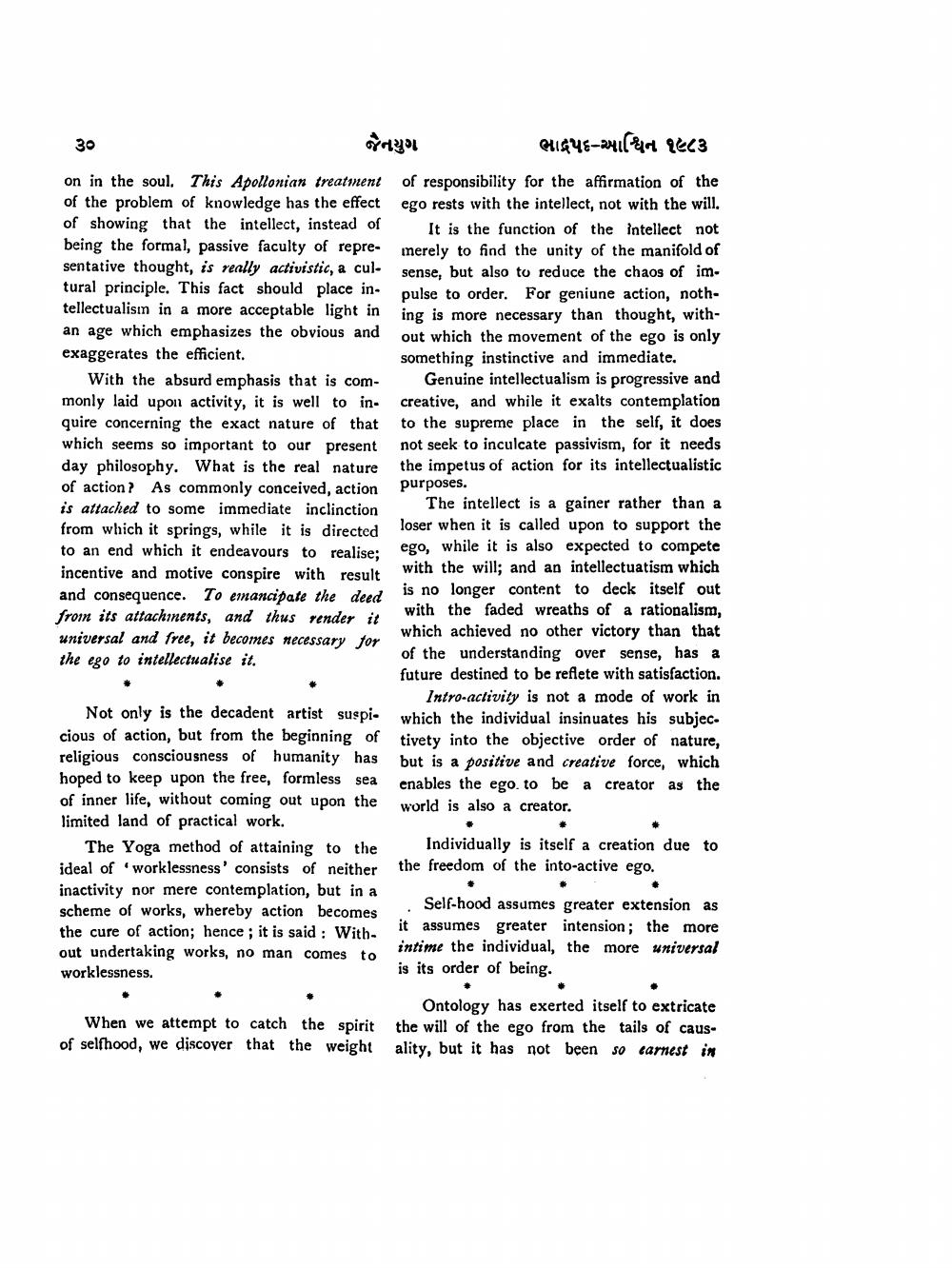________________
30
જેનયુગ
ભાદ્રપદ-આધિન ૧૯૮૩
on in the soul. This Apollonian treatment of the problem of knowledge has the effect of showing that the intellect, instead of being the formal, passive faculty of representative thought, is really activistic, a cultural principle. This fact should place in. tellectualisin in a more acceptable light in an age which emphasizes the obvious and exaggerates the efficient.
With the absurd emphasis that is com- monly laid upon activity, it is well to in- quire concerning the exact nature of that which seems so important to our present day philosophy. What is the real nature of action? As commonly conceived, action is attached to some immediate inclinction from which it springs, while it is directed to an end which it endeavours to realise; incentive and motive conspire with result and consequence. To emancipate the deed from its attachments, and thus render it universal and free, it becomes necessary for the ego to intellectualise it.
of responsibility for the affirmation of the ego rests with the intellect, not with the will.
It is the function of the intellect not merely to find the unity of the manifold of sense, but also to reduce the chaos of impulse to order. For geniune action, nothing is more necessary than thought, without which the movement of the ego is only something instinctive and immediate.
Genuine intellectualism is progressive and creative, and while it exalts contemplation to the supreme place in the self, it does not seek to inculcate passivism, for it needs the impetus of action for its intellectualistic purposes.
The intellect is a gainer rather than a loser when it is called upon to support the ego, while it is also expected to compete with the will; and an intellectuatism which is no longer content to deck itself out with the faded wreaths of a rationalism, which achieved no other victory than that of the understanding over sense, has a future destined to be reflete with satisfaction.
Intro-activity is not a mode of work in which the individual insinuates his subjectivety into the objective order of nature, but is a positive and creative force, which enables the ego, to be a creator as the world is also a creator.
Not only is the decadent artist suspi- cious of action, but from the beginning of religious consciousness of humanity has hoped to keep upon the free, formless sea of inner life, without coming out upon the limited land of practical work.
The Yoga method of attaining to the ideal of worklessness' consists of neither inactivity nor mere contemplation, but in a scheme of works, whereby action becomes the cure of action; hence; it is said : With out undertaking works, no man comes to worklessness.
Individually is itself a creation due to the freedom of the into-active ego.
Self-hood assumes greater extension as it assumes greater intension; the more intime the individual, the more universal is its order of being.
When we attempt to catch the spirit of selfhood, we discover that the weight
Ontology has exerted itself to extricate the will of the ego from the tails of causality, but it has not been so earnest in




